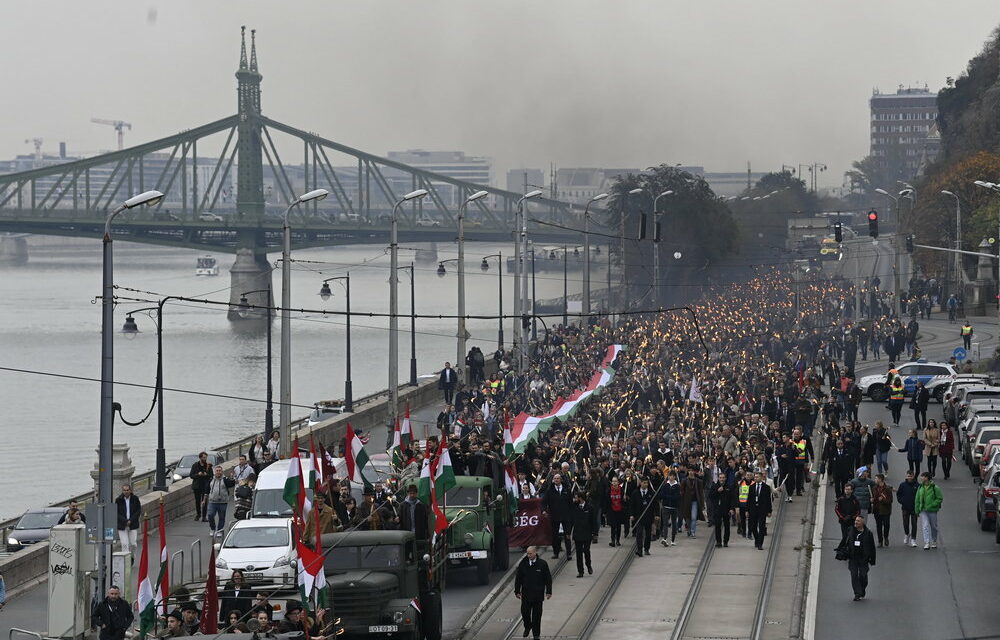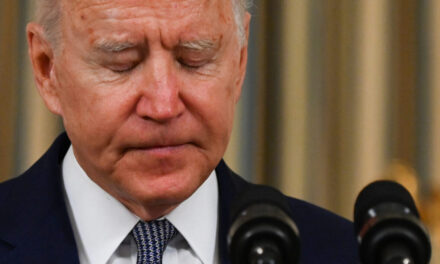This is precisely why the memory of the revolution cannot be a prisoner of current politics! It goes beyond today, because it goes through our past and present at the same time, and if we act correctly, it also determines our future. Written by Ervin Nagy.
For us, real freedom makes sense in the sovereignty of the nation, not in the horrendous limitlessness of liberalism. Western European progressive politics is rooted in the unrestricted expansion of individual freedom, this attitude has also spread in mass culture, but we Hungarians - due to historical reasons - fought for our community and survival, i.e. for the idea of a self-sufficient Hungary revolving around its own axis. during the past centuries.
The holiday and memorial day of this struggle is October 23, and its symbol is the hole-in-one flag.
The revolution and freedom struggle of 1956 embodies the Hungarians' desire for freedom - we should pay attention to this even now, because we are a freedom-loving nation, and this is what holds us together. Parties came and went, movements marched, others demonstrated, and often painfully false parallels were drawn between the past and the present. And the low point was certainly when Ferenc Gyurcsány and his entourage led an unprepared police squad to the commemorative crowd.
This is precisely why the memory of the revolution cannot be a prisoner of current politics! It goes beyond today, because it goes through our past and present at the same time, and if we act correctly, it also determines our future.
Martin Malia, a former professor at the University of California, Berkeley, writes in his book "History's Locomotives - Revolutions and the Making of the Modern World" published in 2006: all revolutionary changes can only be explained by the specific causes of a given age and place. The historical model statement, on the other hand, always results from the generalization of an event, i.e. it does not give a precise answer to what the essence of a specific revolution is.
Thus, '56 can only be captured in its uniqueness. It cannot be compared to any other endeavor of another nation. That is why it imposes a moral obligation on us, which is to be found in the preservation of Hungarianness in the Carpathian Basin.
According to Hanna Arendt's brief definition, "revolution can only be spoken of where change can be interpreted as a new beginning, where violence is used to create a completely new state, and where freedom from oppression is at least seen as the goal of achieving freedom."
Thus, the revolution, as a real event, and the real actions of its actors always and in every case need moral justification. If the latter does not exist, then we are only talking about insurrection or anti-state activity, or even a coup d'état.
This approach is also important from our point of view, because the Hungarian revolution and freedom struggle were evaluated against this political reading in socialism. The later leaders of the state party crushed the 1956 revolution, but they were only able to do so with the help of Soviet soldiers, and then evaluated the events as an anti-state uprising on political-ideological grounds, and as a "counter-revolution" based on the Marxist understanding.
During the establishment of democratic relations after the system change, we consider the naming of the revolution justified and justified, morally and also considering the appearance of the demand for freedom, which was a small step for the science of history, a big step for Hungarians.
So, after all this, it can be said that the revolution of 1956, and then the freedom struggle that developed after it, stand before us as a morally justifiable political action and a linear historical event. An attempt at a moral transition from a dictatorial system and an effort to protect the homeland.
But all of this would be tiresome reasoning without the presentation of reality, which a dignified commemoration makes possible. 1956 was a state of amnesty.
Priests, manual laborers and intellectuals who stood up against oppression jointly demanded the overthrow of the power of that time and a moral transition. They acted together against an oppressive empire. Together, they fought the freedom struggle. Its uniqueness lies in this. So let's preserve and pass on this specific, characteristic basic position! The love of freedom and the idea of self-governing Hungary.













